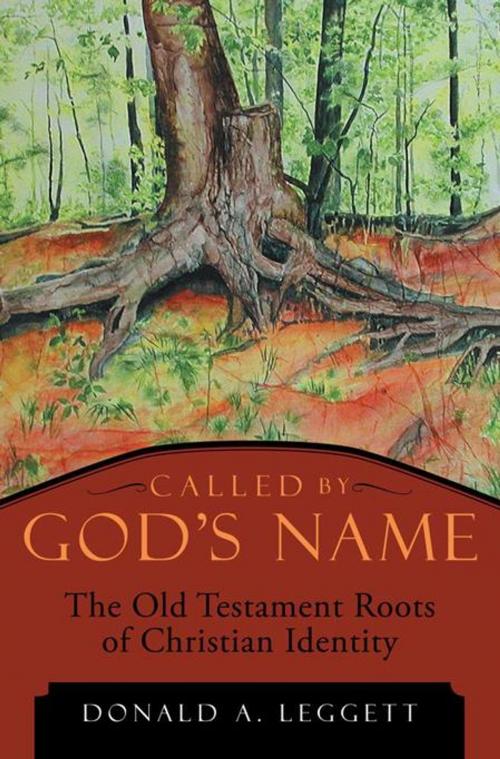Called by God's Name
The Old Testament Roots of Christian Identity
Nonfiction, Religion & Spirituality, Inspiration & Meditation, Spirituality, Christianity, Christian Life| Author: | Linda Leggett | ISBN: | 9781449771874 |
| Publisher: | WestBow Press | Publication: | December 20, 2012 |
| Imprint: | WestBow Press | Language: | English |
| Author: | Linda Leggett |
| ISBN: | 9781449771874 |
| Publisher: | WestBow Press |
| Publication: | December 20, 2012 |
| Imprint: | WestBow Press |
| Language: | English |
When God named himself it was more than a label. He stressed that his name represented his character and those who bore it must accurately display that character in their words and deeds. Misunderstanding this basic biblical truth has led to the reduction of the third commandment to simply a language issue in popular culture. However, its correct understanding and preaching should be the start of knowing Gods dealings with his Old and New Testament people as well as the template for todays believers. Initially establishing the consistency of the testamental record through themes and the use of the Old Testament by Jesus and the New Testament writers, the author displays some of Gods characteristics found in both testaments, which illustrate ethical requirements for his church and inspire the responses of his people. The fruit of a lifetime of study of the Old Testament, distilling biblical wisdom, written concisely, and understandable to the average church member, though informed by much scholarly reading. As a gifted biblical expositor and much-loved classroom teacher, Leggett again pushes us into Old Testament study to inform us of the New and inspires us to more whole-hearted devotion to the God who has called us by his name. Dr. Terrance Tiessen, emeritus professor of theology and ethics, Providence Seminary Leggetts final work captures his love for Scripture as he carefully explores the theme of Christian identity, drawing on his thorough familiarity with the biblical texts and his impressive knowledge of Old Testament scholarship. Accessibility in style and practical insights make it a valuable resource for the lay person to deepen their understanding of the Scriptures and the God of whom they speak. John Franklin, IMAGO director; adjunct at Tyndale Seminary and Trinity College, Toronto With warmth and passion the author traces specific themes through both testaments, illustrating their unity of witness to the character of God. (The
When God named himself it was more than a label. He stressed that his name represented his character and those who bore it must accurately display that character in their words and deeds. Misunderstanding this basic biblical truth has led to the reduction of the third commandment to simply a language issue in popular culture. However, its correct understanding and preaching should be the start of knowing Gods dealings with his Old and New Testament people as well as the template for todays believers. Initially establishing the consistency of the testamental record through themes and the use of the Old Testament by Jesus and the New Testament writers, the author displays some of Gods characteristics found in both testaments, which illustrate ethical requirements for his church and inspire the responses of his people. The fruit of a lifetime of study of the Old Testament, distilling biblical wisdom, written concisely, and understandable to the average church member, though informed by much scholarly reading. As a gifted biblical expositor and much-loved classroom teacher, Leggett again pushes us into Old Testament study to inform us of the New and inspires us to more whole-hearted devotion to the God who has called us by his name. Dr. Terrance Tiessen, emeritus professor of theology and ethics, Providence Seminary Leggetts final work captures his love for Scripture as he carefully explores the theme of Christian identity, drawing on his thorough familiarity with the biblical texts and his impressive knowledge of Old Testament scholarship. Accessibility in style and practical insights make it a valuable resource for the lay person to deepen their understanding of the Scriptures and the God of whom they speak. John Franklin, IMAGO director; adjunct at Tyndale Seminary and Trinity College, Toronto With warmth and passion the author traces specific themes through both testaments, illustrating their unity of witness to the character of God. (The















